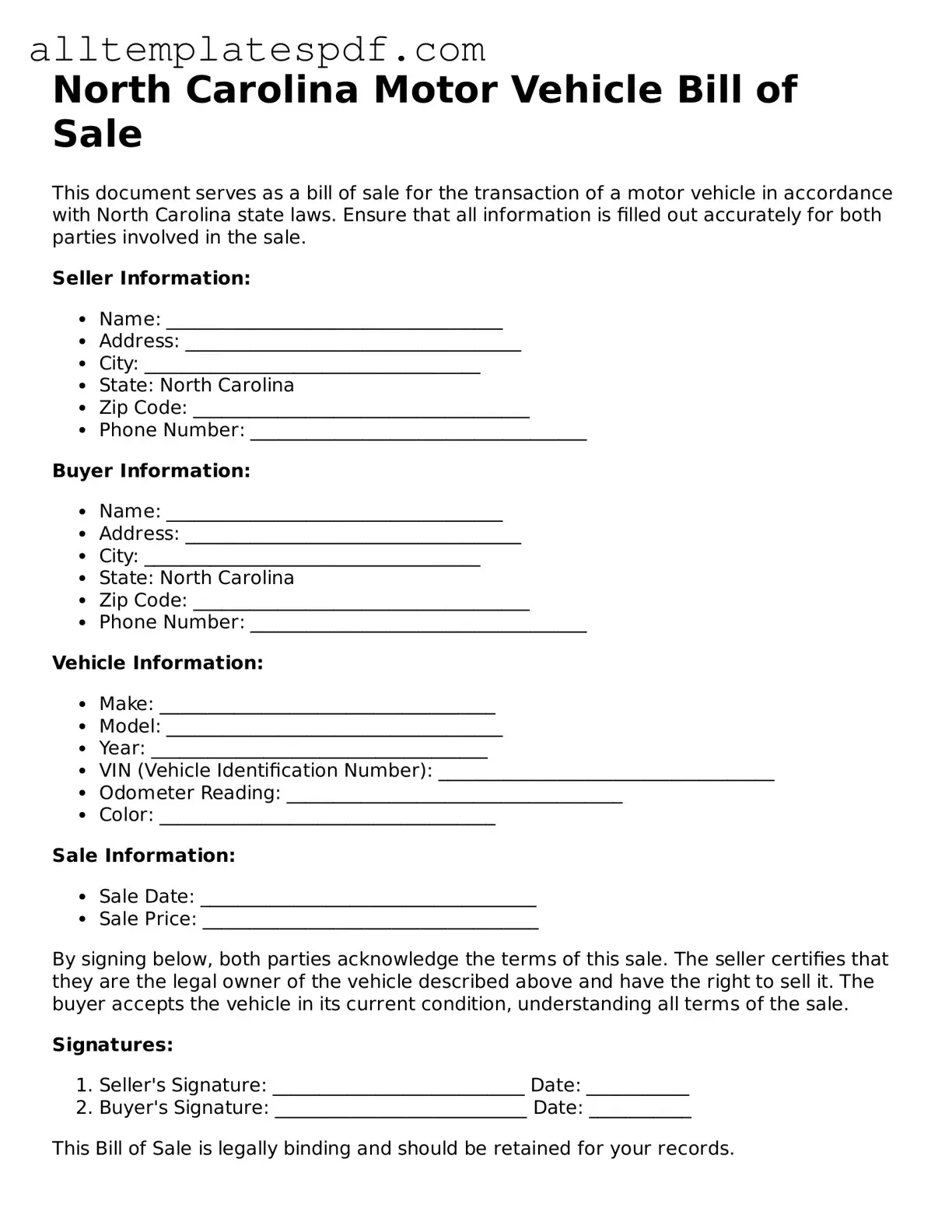Blank Motor Vehicle Bill of Sale Template for the State of North Carolina
The North Carolina Motor Vehicle Bill of Sale form serves as a legal document that records the transfer of ownership of a motor vehicle from one party to another. This form is essential for both buyers and sellers, ensuring that the transaction is documented and recognized by the state. To facilitate a smooth transfer, consider filling out the form by clicking the button below.
Open Editor

Blank Motor Vehicle Bill of Sale Template for the State of North Carolina
Open Editor
Fast and easy form completion
Complete Motor Vehicle Bill of Sale digitally — fast and easy.
Open Editor
or
↓ Motor Vehicle Bill of Sale PDF Form
